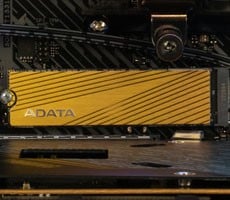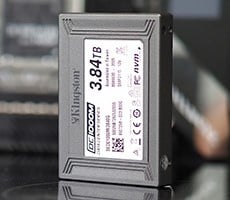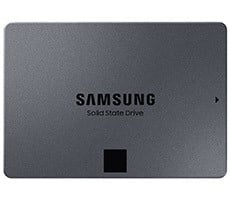Samsung X5 Thunderbolt 3 Portable SSD Review: Ridiculously Fast External Storage
Our Test Methodologies: Under each test condition, the Solid State Drives tested here were installed as secondary volumes in our testbed, with a separate drive used for the OS and benchmark installations. Out testbed's motherboard for the internal drives was updated with the latest BIOS available at the time of publication and AHCI (or RAID) mode was enabled.
The SSDs were secure erased prior to testing where applicable, and left blank without partitions for some tests, while others required them to be partitioned and formatted, as is the case with our ATTO and CrystalDiskMark benchmark tests. Windows firewall, automatic updates, and screen savers were all disabled before testing, and Windows Quiet Hours was enabled. In all test runs, we rebooted the system, ensured all temp and prefetch data was purged, waited several minutes for drive activity to settle and for the system to reach an idle state before invoking a test.Because a Thunderbolt 3 connection was needed to test the Samsung X5 Portable SSD, we connected it to a fully-loaded Dell XPS 13, complete with an 8th Gen Core i7 CPU, 16GB of RAM, an NVMe SSD, and Windows 10 x64.
|

The Samsung X5 obviously crushes all of the other drives we tested -- which are limited by their SATA interfaces or USB connections -- and approaches 2.5GB/s reads. We've included scores from Samsung's previous-gen T5 and T3 external SSDs, along with some internal drives strictly for comparison and reference purposes, but as you'll see, except for small file transfers, the X5 is simply in another class.
|
ATTO is another "quick and dirty" type of disk benchmark that measures transfer speeds across a specific volume length. It measures raw transfer rates for both reads and writes and graphs them out in an easily interpreted chart. We chose .5kb through 8192kb transfer sizes and a queue depth of 6 over a total max volume length of 256MB. ATTO's workloads are sequential in nature and measure bandwidth, rather than I/O response time, access latency, etc.


The Samsung X5 Thunderbolt 3 Portable SSD pulls well ahead of all of the other drives across all transfer sizes in the ATTO benchmark as well, and approaches 2GB/s writes and 2.5GB/s reads.







